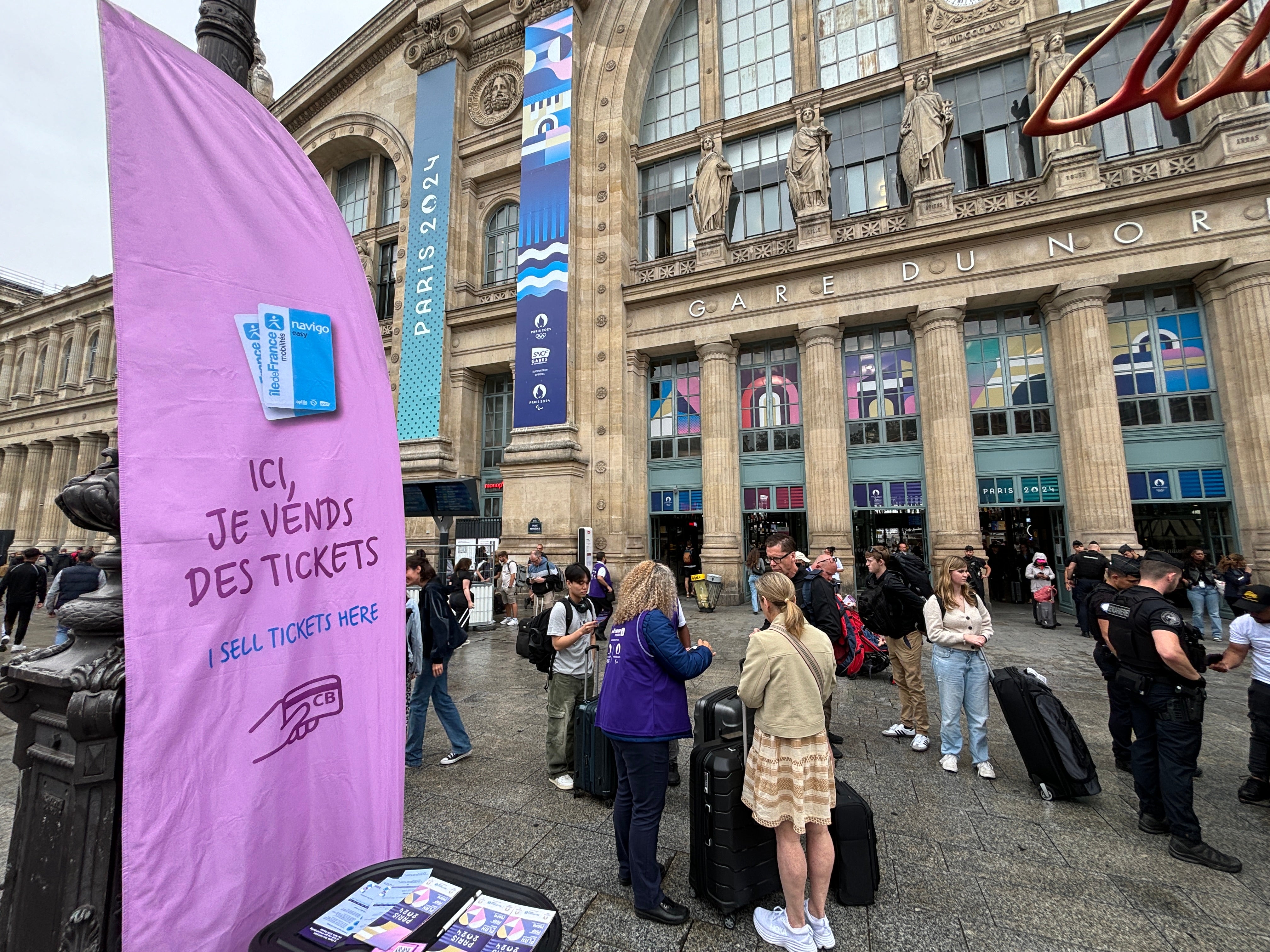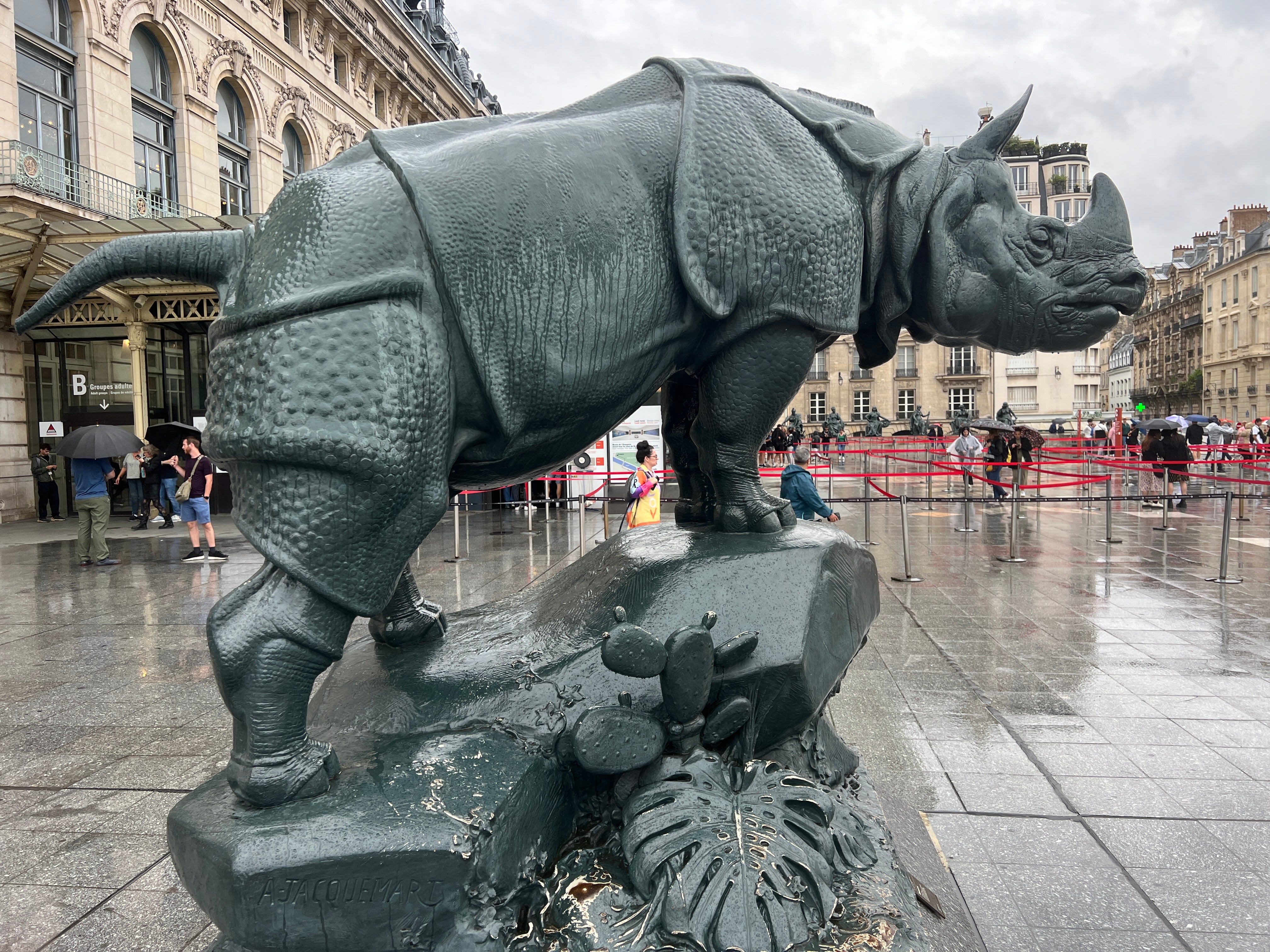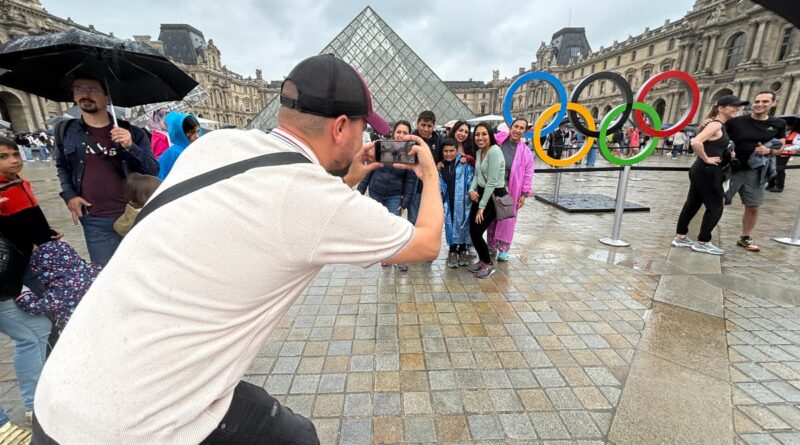Olympics on a Bronze budget
Support truly
independent journalism
Our mission is to deliver unbiased, fact-based reporting that holds power to account and exposes the truth.
Whether $5 or $50, every contribution counts.
Support us to deliver journalism without an agenda.
“The city is empty,” Rachida says with a sigh. “We were expecting things to be good, but for hotels and restaurants it’s …”
She pauses and simply makes a gesture with her hands of falling from a cliff.
Rachida manages the Hotel Pax Opera: a three-star hotel around the corner from the Folies Bergère in Paris. My comfortable sixth-floor room costs a very reasonable £75 with breakfast and a friendly welcome. That is about one-third less than I paid in a similar property early in December last year.
France attracts more international visitors than any other country, and in summer its capital is usually rammed – particularly with big tour groups from Asia and North America. But this year they are staying away from Paris during the Olympics – and, looking at hotel and flight prices, well into August too.
“This is a very bad time for us, but it’s a good time to be a tourist because there are no queues.” Rachida sums up why you should take the Paris tourist decathlon challenge.
Head south across the Channel. Not only will you grab a bargain; I guarantee you will see the French capital in a fresh, uncrowded light.
You will also feel the quintessential Olympic ambiance. Don’t heckle: my first Games was Seoul, South Korea, in 1988. (For the avoidance of doubt, I was not competing.) On the elusive quality of humanity celebrating internationalism, passion and achievement, I do know what I am talking about for once.
For example, the random strangers you meet: just now, I was talking to the parents of the woman who is cox to the Australian rowing eight. Their faces were a picture of pride and joy.
So get here quick – but get in training for the Paris tourism decathlon.
Event 1: Reaching Paris
I timed my run for the day after the opening ceremony. Three days ahead, I bought a British Airways London Heathrow-Paris CDG flight for Avios points. Availability is tighter because of the Eurostar chaos. Because of the arson attack on the high-speed line from Lille to Paris, thousands of passengers were unable to travel on the trains they had booked, and the subsequent extra demand has driven up prices.
But for example on 6 August you can travel for 9,250 Avios (which I value at around £93).
I have a plane ticket back from Paris Orly to London Gatwick on Vueling for £40.
Lower fares are available from a wide range of UK airports. For example on Tuesday 30 July, Ryanair would like just £22 for flying you the 500 miles from Belfast International to Beauvais in northern France. (You will spend another £15 reaching Paris on the bus, a journey of 75 minutes.)
Event 2: Tackling public transport
While Paris arguably has the best system of Métro, RER (suburban express), buses and trams in Europe, buying tickets can be a pain. But purple-clad volunteers will help you with the Kafkaesque machines – and there is even a roving ticket seller outside Gare du Nord station who will provide you with the €18 one-day pass that covers the entire Ile-de-France region.

Three warnings:
- The RER, which links CDG airport with the centre and should be the speediest way to get around, is experiencing a number of cancellations and delays.
- Some key stations, such as Concorde, are closed.
- There appear to be semi-random closures of various Métro stations, particularly after events, so watch for that when planning your escape.
Event 3: Checking in
I booked two days before arrival at a rate of £75 a night. I judged hotel rates could fall no further. I was wrong: many decent three-star properties are now charging just £60-£70 for a double room. Search online through a comparison site, filtering by location and price band, then book direct.
Event 4: Finding tickets
Simple: get the excellent Paris 2024 Tickets app, and you can barely move for options. Right now there is quite a lot of basketball, weightlifting and table tennis on my feed, but trust me: it’s all about the ambiance. Prices start at €15.
Event 5: Reaching the event venue
Paris 2024 Tickets will text you in advance with the recommended route/timing. While you can take a water bottle into the venue, the cap is removed and confiscated.
Event 6: Keeping your phone charged
Essential for all events. You have to show the QR code for your ticket repeatedly. You should also carry your passport, on the off-chance that they bother to reconcile your identity with the name on the ticket.
Event 7: Enduring French pop music
This is surely the toughest challenge. Unfortunately at various points during the event, the organisers are likely to subject the spectators to the cruel and unusual punishment of tunes such as Les Champs-Élysées by Joe Dassin (please don’t search for it on YouTube).
At the Parc des Princes I felt fortunate when Ca Plane Pour Moi by Plastic Bertrand came on. Presumably the artiste qualified by singing in French, even though he is Belgian.
Event 8: Art for art’s sake
The only queue I have spent any time in was for the Louvre (for which you must pre-book). No advance planning is needed for the Musee d’Orsay. Turn up when you like and walk straight in. This is the only peak summer when you will ever be able to do that.

Event 9: Happy hour
Never pay more than €5 for a pinte (500ml) of decent lager. The most extended happy hour is at Café Boukhara, an interesting Georgian-Uzbek haunt at 37 Rue de Trévise, where the cheap drinks last from noon to 11pm.
Event 10: Dining out
Historic and beautiful. No, not me: Bouillon Chartier, a classic French brasserie that is particularly popular due to its excellent dishes at low prices. Queues are common in normal times.
Yet turn up at 6pm in the next couple of weeks and there will be no need to wait before you dine on bœuf Bourguignon for €10, with a generous glass of decent merlot adding only €3.20 to the total.
Paris is the city of tourism love. Especially right now.
Simon Calder, also known as The Man Who Pays His Way, has been writing about travel for The Independent since 1994. In his weekly opinion column, he explores a key travel issue – and what it means for you.




